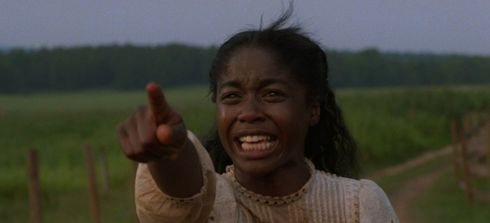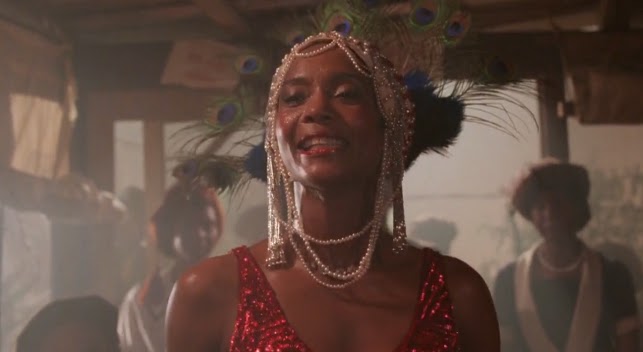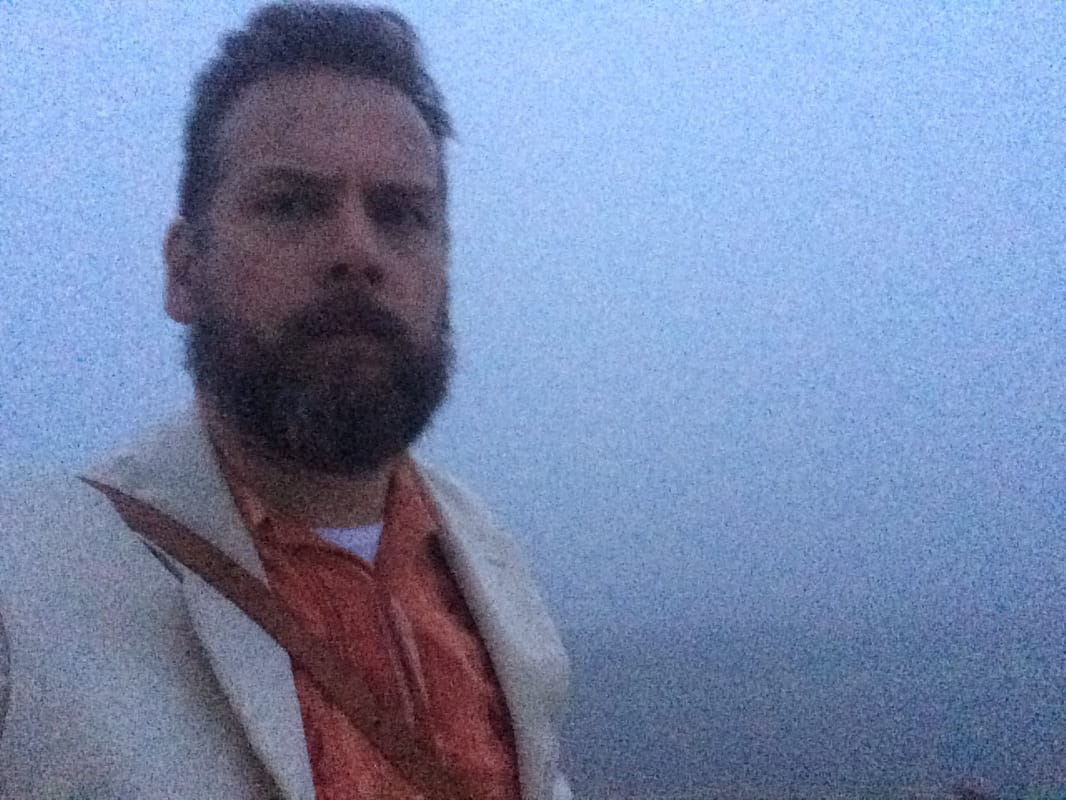|
I've never really understood this idea that Steven Spielberg felt it necessary to move into serious films. To me Jaws, Close Encounters and E.T. qualify as serious films. Yes, they also happen to be hugely entertaining and popular, but that's beside the point. The Seven Samurai was successful as was 2001: A Space Odyssey. Vertigo also. And they're also highly entertaining and serious films. But it was Spielberg himself to some extent who wanted to move on to more weighty material. To prove that he was an artist and not simply a money maker. And so we come to his 1985 adaptation of Alice Walker's breakout novel The Color Purple.  The film tells the story of Celie, played by Whoopi Goldberg in her debut performance, an abused woman who suffers at the hands of the cruel men around her in rural Georgia in the first half of the Twentieth Century. The epistolary novel makes for some pretty grim reading but Spielberg decided to follow David Lean's maxim of talking about ugliness in a beautiful way - see the cavalry charge in the poppy field in Doctor Zhivago, a decision which saw cinematographer Nicolas Roeg leave the production by the way. Georgia is rendered as a beautiful place, all magic hour photography and sunsets, and although we see grinding poverty at the beginning of the film, the house of Mister (Danny Glover) where most of the drama takes place is a spacious mansion which at worst needs a bit of elbow grease. This airiness makes the house, and later Harpo's gin joint, into a typical Spielbergian space, ramshackle and cluttered but also large and comforting. Celie is mistreated in the first part of the film and then later, sporadically, even as she begins to fight back and better her condition. She is separated from her children, raped first by a man she believes to be her father and then once more by the man (Mister) to whom she is basically sold into wedlock. She is abused and beaten and separated again from the one person she has real affection for, her sister Nettie, after Mister tries to rape her. This miserable existence would make for hard viewing, as the book at first makes for hard reading. But Spielberg's urge to make his movie entertaining and moving leads him soften the harshness and consequently there are some truly baffling tonal shifts. The use of comedy throughout undermines Celie's suffering. It makes the film deeply unserious. Mister goes from being a tyrant to being a buffoon way too quickly. Even his attempted rape of Nettie is played with a comic beat. Shug Avery's arrival reduces him to an image of foolishness also, hitting his head on pots and pans as he attempts to make her breakfast which is burning in an exaggeration that beggars belief. The comedy is too broad; not actually that funny and it let's the audience and Mister off the hook. Oprah Winfrey as Sophia is supposed to be an unstoppable battle axe, a force of life but her war with Harpo, Mister's eldest son, is taken too lightly as he falls through the ceiling of their new night spot, cack-handedly attempting repairs. Then when the darkness returns, as it occasionally does with Sophia's beating at the hands of the white towns folk, we're unprepared. Even this savage moment is presaged by an almost comic build up. 'Oh no Miss Sophia!' Lawrence Fishburne's guitarist shouts. Spielberg was trying to make an epic, entertaining family melodrama. Something that could be shown at Christmas on television. So the true brutality of what happens to Celie is toned down, the comedy turned up and the lush chocolate box beauty likewise emphasized. In a sense, the director's heart is in the right place. In 1985, big budget cinema did precious little to address or portray the black experience. Racism rarely got a look in and black women specifically were rarely visible outside of the usual stereotypes. There are musical set pieces, no doubt aided by Quincy Jones who replaces John Williams as Spielberg's composer for this picture. These are impressive and some of the emotion breaks through. Nettie leaving her sister and shouting 'why? why?' over and over is the kind of raw untrammeled emotion that Spielberg is good at, quite the opposite of sentimentality. But the fact remains that the film clangs too often. Its characters don't develop properly as the film doesn't fully portray who they are and what they have suffered. It's handsomely produced and technically accomplished but even here the slickness is a sign that Spielberg hasn't truly engaged with the material. When he came to make Schindler's List years later, he would consciously decide not to storyboard the film because he believed that doing so on The Color Purple had damaged the film. He was right. This is a movie that needs a bit of hair in the gate, a bit of dirty under its nails and blood in its mouth. Fortunately, his next 'serious film' - and again I'm really not hot on that distinction - will be a much more successful effort.
0 Comments
Leave a Reply. |
AuthorJohn Bleasdale is a writer. His work has appeared in The Guardian, The Independent, Il Manifesto, as well as CineVue.Com and theStudioExec.com. He has also written a number of plays, screenplays and novels. Archives
March 2019
|


 RSS Feed
RSS Feed


